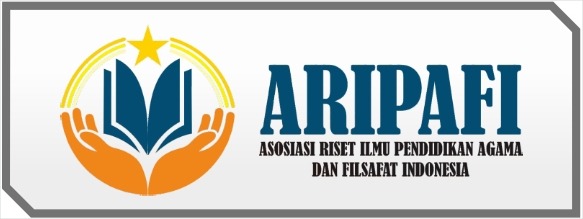Contextual Tafsir and Digital Islam in Southeast Asia: A Narrative Review
DOI:
https://doi.org/10.61194/ijis.v2i2.603Keywords:
Contemporary Qur’anic Exegesis, Southeast Asia, Tafsir Maqasid, Contextual Interpretation, Gender-Inclusive Tafsir, Digital Islam, Islamic EducationAbstract
This narrative review explores the development of contemporary Qur'anic exegesis (tafsir) in Southeast Asia, a region marked by religious diversity and dynamic socio-political landscapes. The study aims to investigate how interpretative frameworks have evolved to address modern societal challenges while remaining grounded in classical Islamic traditions. Using a structured literature search across academic databases including Scopus and Google Scholar, the review analyzes scholarly contributions employing maqasid-based, thematic, pedagogical, and contextual methods. Criteria for inclusion prioritized peer-reviewed publications in English, Indonesian, and Malay from 2000 onwards. The findings reveal that contemporary tafsir in Southeast Asia is characterized by methodological plurality, the integration of digital technology, gender-inclusive interpretation, and responsiveness to local contexts. Maqasid-oriented tafsir emerges as a pivotal approach, enabling ethical and socially relevant interpretations of the Qur’an. The use of platforms like YouTube has expanded access to tafsir, while female scholars contribute significantly to more inclusive and egalitarian interpretations. Political structures and educational systems influence both the dissemination and institutionalization of tafsir. However, challenges remain, including rigid curricula, limited funding, and ideological control by state religious institutions. This review underscores the necessity for innovation, interdisciplinary engagement, and institutional support in sustaining a relevant and dynamic tafsir tradition. Southeast Asia offers valuable insights and models that can inform global tafsir discourse, particularly in pluralistic societies. Future research should explore emerging intersections with digital ethics, interfaith dialogue, and sustainable development.
References
AKYÜZ, N. (2024). Inclusive dialogue and multiculturalism in Southeast Asian tafsir. Journal of Contemporary Qur’anic Studies, 12(1), 44–61.
Aras, R., & Solihin, D. (2022). Digital Islam and state regulation in Indonesia: Between democratization and control. Journal of Islamic Communication, 6(2), 112–129.
Bakhri, M., & Taufiq, H. (2023). Gender justice in modern tafsir: A Southeast Asian perspective. Journal of Islamic Feminist Studies, 8(1), 55–72.
Hameed, S. (2016). Reclaiming female voice in Qur’anic interpretation: The work of Nāʾila Hāshim Ṣabrī. Journal of Gender and Islamic Thought, 7(1), 77–94.
Islam, M., & Samsudin, M. (2018). The application of amanah in Southeast Asian tafsir discourse. Journal of Islamic Ethics and Society, 5(2), 88–103.
Kaltsum, L., & Amin, F. (2024). Shifting authority in Southeast Asian tafsir: Academic and social perspectives. Southeast Asian Journal of Qur’anic Studies, 14(1), 31–50.
Karimi-Nia, M. (2012). Qur’anic exegesis and state politics: A Malaysian case study. Journal of Religion and State, 10(3), 215–234.
Khasanah, N., Subekti, R., & Zulfahmi, M. (2023). Digital dissemination of tafsir: YouTube and Islamic scholarship in Indonesia. Journal of Digital Religion Studies, 9(1), 66–84.
Muhamad, N., Rachman, D., & Salim, H. (2019). Tafsir and environmental justice: Southeast Asian contributions. Islamic Environmental Ethics Review, 4(2), 55–71.
Muhammad, F., & Rahman, R. (2022). Historicizing tafsir: Socio-political foundations of Southeast Asian interpretation. Journal of Qur’anic Hermeneutics, 11(2), 101–120.
Nordin, A. (2023). Interdisciplinary engagement in Southeast Asian Qur’anic interpretation. Journal of Islamic Academic Dialogue, 15(1), 45–62.
Okawa, N. (2019). Tafsir and civil society in Indonesia: Engaging the public through exegesis. Journal of Islamic Public Studies, 7(2), 90–108.
Raihani. (2017). Education for multicultural citizens in Indonesia: Policies and practices. Compare: A Journal of Comparative and International Education, 47(1), 38–55. https://doi.org/10.1080/03057925.2016.1134957
R'boul, H. (2021). Teaching democratic values through Islamic education in European Muslim schools. Intercultural Education, 32(5), 551–567. https://doi.org/10.1080/14675986.2021.1938752
Rissanen, I. (2012). Teaching Islamic education in Finnish schools: A case of dialogical pedagogy. British Journal of Religious Education, 34(3), 225–239. https://doi.org/10.1080/01416200.2012.687363
Saihu, M., Wijayanti, N., & Kurniawan, F. (2022). Character education for religious moderation in urban Islamic schools. Jurnal Pendidikan Karakter, 12(1), 45–59.
Takunas, A., Rahayu, F., & Wibowo, S. (2024). School leadership and inclusive educational policies: Evidence from Islamic public schools in Java. Educational Management Perspectives, 14(1), 88–103.
Suleimān, A., Azhar, N., & Norhadi, M. (2024). Community identity and tafsir in Muslim-minority Southeast Asia. Journal of Islamic Studies and Identity, 13(1), 25–43.
Surahman, I. (2019). Tafsir tarbawi and curricular transformation in Indonesian Islamic schools. Journal of Islamic Education Reform, 6(1), 55–72.
Wijaya, R., & Muzammil, M. (2021). Maqasid-based Qur’anic interpretation in contemporary Indonesia. Journal of Modern Islamic Thought, 10(2), 88–105.
Zamir, H. (2023). The rise of interdisciplinary tafsir: Trends and challenges. Southeast Asian Journal of Quranic Innovation, 8(3), 77–95.
Zulfikri, A., & Badawi, I. (2021). Tafsir al-Azhar and Southeast Asian modernism. Journal of Islamic Thought and Reform, 9(2), 109–125.






